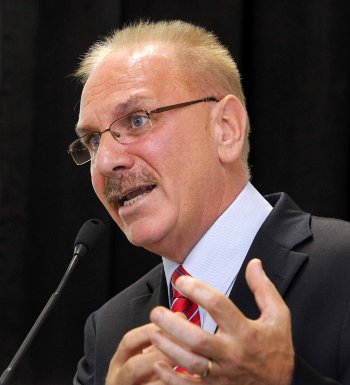HUNDREDS of Irish people in Britain began 2014 in the grips of “suicidal crisis”, a leading charity has warned.
Calls flooded into Console’s British helpline throughout December, with the newly-arrived representing the vast majority of the 2,200 suicidal callers.
The number crying out for help “massively increased” on normal rates around Christmas before peaking on New Year’s Day the charity confirmed.
Console’s CEO and founder Paul Kelly said he has been left “deeply concerned” about the health of recent Irish migrants after hearing the plight of thousands since Console’s London office opened in November 2012.
“A lot of the people who contact us do not know where to turn,” he said. “And with men you find many have great difficulty seeking help if they are in emotional or psychological distress.
“But that is made worse if they are in a new country, so they are extremely vulnerable when they call us.”
Such is the need for mental health services for the Irish in Britain, Console is now planning to open a base in Leeds in April.
Of the calls received by Console’s London helpline in December, 600 were said to be at “immediate” risk of suicide, while 1,600 were considered at risk.
A further 500 callers were concerned about a loved one who might be at risk.
 Founder and CEO of Console Paul Kelly
Founder and CEO of Console Paul KellyLoneliness was the most common reason reported by those contemplating suicide.
The highest volume of calls came from men aged 15 to 24.
Mr Kelly said his “heart went out” to those he spoke with who were struggling during the holiday period.
“I really felt sorry for a lot of the young Irish people who were calling us,” he said. “You can just hear that they feel so disconnected and alone. Many also had a sense of despair because they felt like they have not measured up and are a failure.”
Such feelings were intensified for those who could not travel home to family at Christmas, he added.
Mr Kelly’s comments come in stark contrast to other assessments of the well-being of recent Irish migrants.
A landmark survey by University College Cork last year found that Irish people who left home since 2008 rate their quality of life abroad at an average of 7.9 out of 10, compared with 5.5 out of 10 before they emigrated.
Meanwhile, 94 per cent of people polled said they found work abroad within two months of arriving.
Mr Kelly described the findings as “encouraging”, but added: “What we are dealing with on the ground is a lot of young people who have left Ireland to go to Britain with the dream of picking up good employment, yet find themselves feeling completely alone over here. That is a serious issue and we are dealing with it on a daily basis.”
Highlighting the need for better mental health services for the Irish in Britain, members of the Leeds Irish community have invited Console to set up a base in the city.
Mr Kelly confirmed that the charity aims to have a new counselling service available in Leeds by April.
It will be bankrolled by a successful Leeds Irish businessman who wants to remain anonymous, he added.
Support for the needs of recent emigrants will also receive an added boost with new funding from the Irish Youth Foundation (IYF).
The organisation has launched a £30,000 initiative supporting charities that help newly-arrived Irish people who are unprepared for life in Britain or who fall through gaps in the welfare system.
The project will “provide an emergency safety net over the difficult winter months for destitute young individuals up to the age of 30,” an IYF spokesperson said.

